Braun vs Philips: which electric shaver should I choose?
Picking between Braun and Philips electric shavers can be tricky... but T3 is here to help you

Bethan Morgan
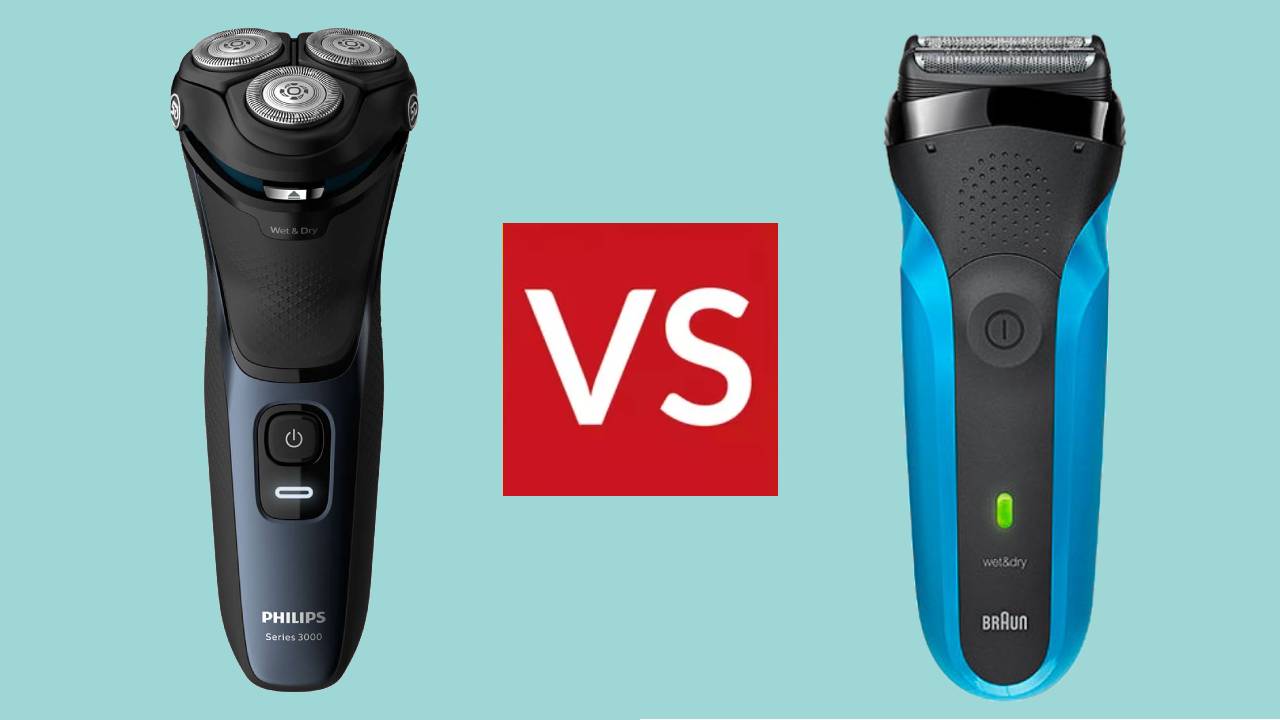
When it comes to buying the best electric shaver, there are really only two brands to consider. These are Braun and Philips, heavyweights of the industry who have produced top-notch shavers across a broad range of prices for years.
Those who value great industrial design above all else might opt for Braun on the basis of looks – and the allure of buying into the Dieter Rams legend – alone. But I recommend you put your facial hair type, potential for skin irritation, demands from a shaver and budget at the top of your list of priorities.
Here's a breakdown on Braun and Philips shavers and which you should choose.
Braun vs Philips: What’s the difference?
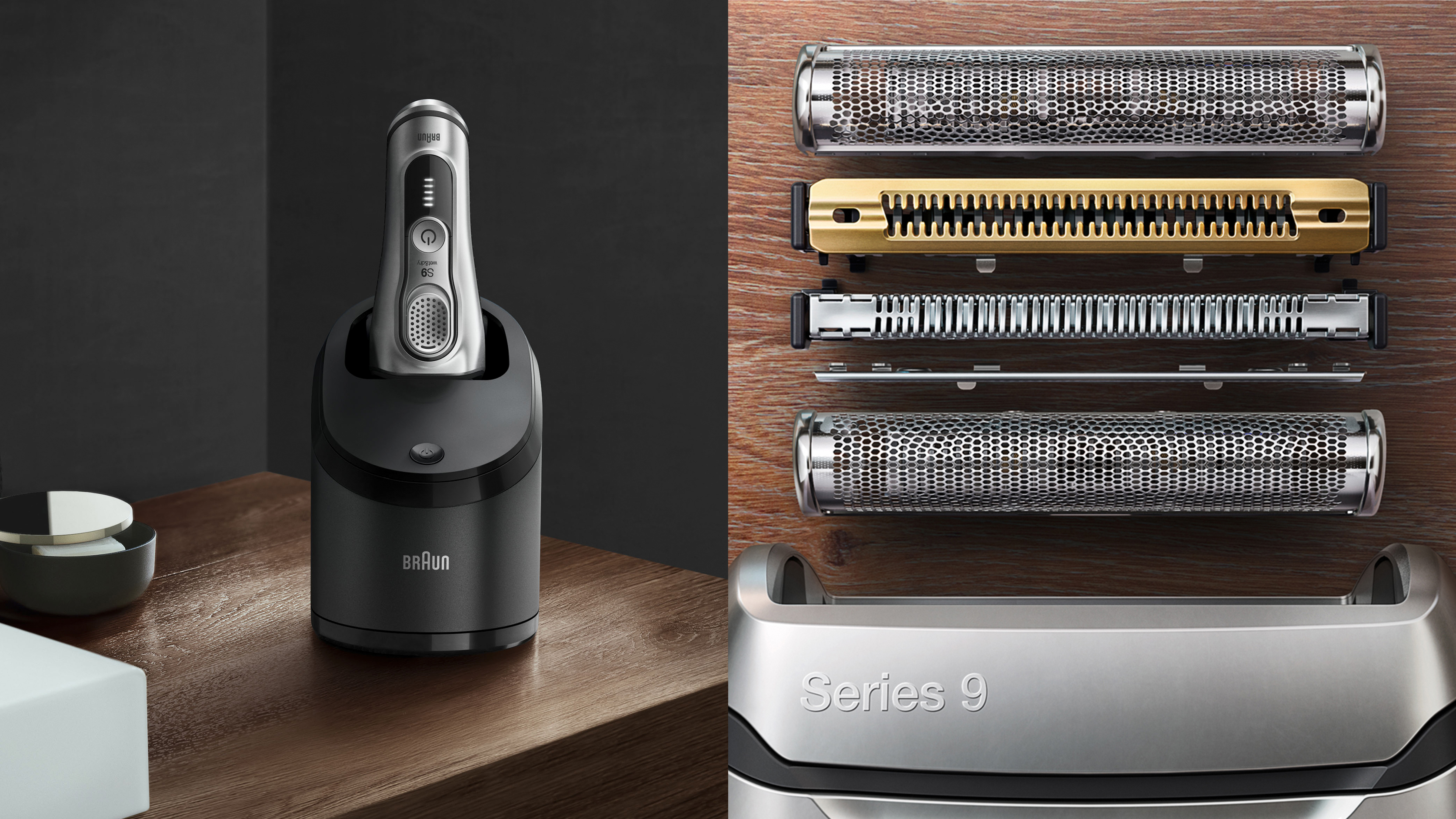
There is one fundamental difference between Braun and Philips electric shavers, and that is their design. Braun shavers use a foil design, while Philips makes rotary shavers. Both aim to cut your facial hair as closely as possible, with as little skin irritation as possible, but they go about it quite different ways.
Let’s look at Braun’s foil design first. A foil shaver uses one or more metal bars that are covered in tiny holes and which catch hairs as the head of the shaver is drawn across your skin. Once fed into the holes of these bars, which form the foil, the hairs are neatly clipped by a blade beneath.
Foil shavers work best when used in one direction, so you’ll find yourself shaving in straight lines, repeating the same action in the same direction until your face is silky smooth. It’s a lot like shaving with a manual blade, but faster, more efficient and with a far smaller chance of cutting your skin.
Rotary shavers, like those predominantly used by Philips, still use a blade to cut your hair, but they do so through one or more (often three) circular foil pods. There are multiple blades beneath these pods, with hair fed into them at any angle. So instead of running the shaver up and down your face in straight lines, the rotary shaver can be rubbed over the skin at any angle, and often in circles.
Get all the latest news, reviews, deals and buying guides on gorgeous tech, home and active products from the T3 experts
These types of shavers tend to be best for those with coarse hair that grows in multiple directions, as these hairs are more likely to be missed by a foil shaver travelling in one direction.
Both types of shaver will eventually need their shaving surfaces replaced, which means new shaving heads every two years for Philips rotary shavers and new foils every 18 months for Braun models. Both replacements tend to cost in the region of £50.
Braun vs Philips: Features
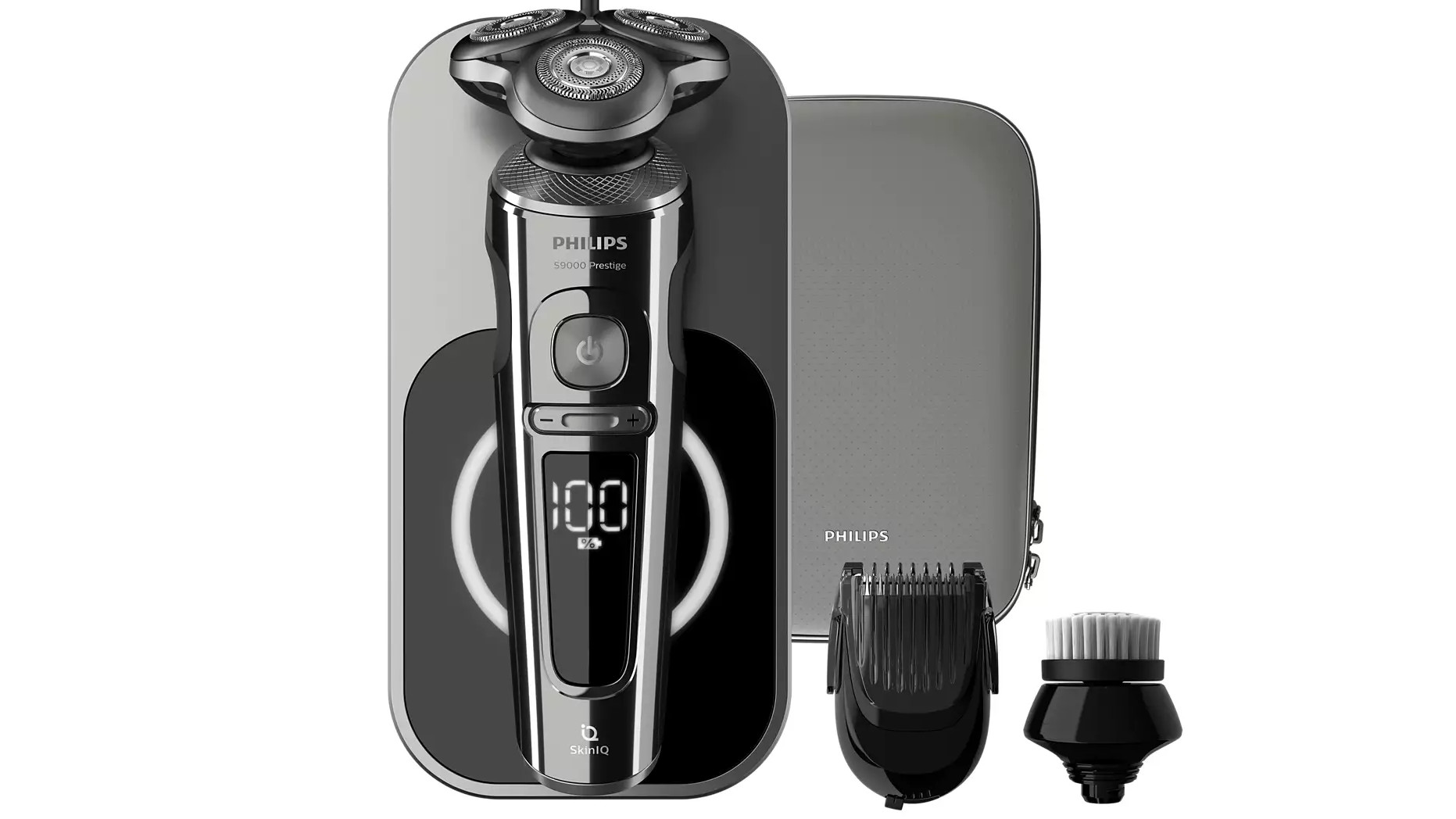
As with most products, the more you spend the more features you get. Key features to look out for on electric shavers include battery life and charge time, water resistance (so you can use it in the shower, for example), and whether the shaver includes an integrated or attachable beard trimmer. Naturally the former is more convenient and less likely to be misplaced.
For foil shavers, you’ll want to look out for the number of foils or bars, as more of those effectively means a larger shaving surface and more hairs fed into the blade at once. The equivalent for Philips rotary shavers is how many rotor heads the shaver has.
For both types of shaver you should look at how flexible the shaving surface is, as more movement means it’ll do a better job of closely following the contours of your face, giving a closer and more consistent shave.
Features on more expensive shavers include wireless charging docks, digital displays to show shaving mode and battery life – and if you want something a bit left-field, there’s even the Braun CoolTec CT2CC and its fridge-like electro-mechanical ceramic cooling strip.
Braun vs Philips: Performance
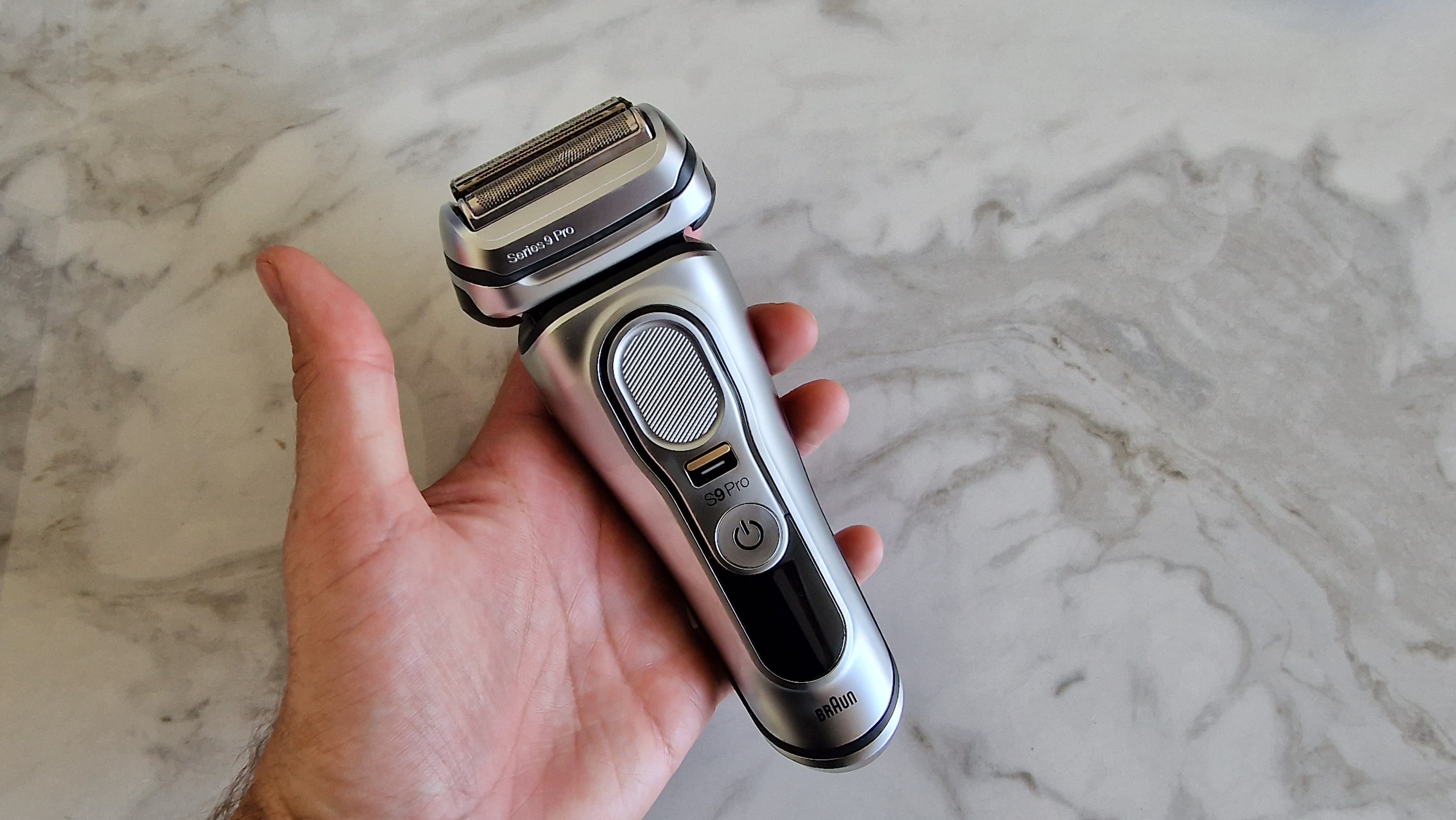
Braun Series 9 Pro
For a deep dive into what’s available today, check out our guide to the best electric shavers of 2023, which includes lots of examples from both Braun and Philips.
For a snapshot of what to expect from your new electric shaver, closeness and easy-of-use are the benefits you’ll notice right away. Whether you go for Braun or Philips, modern shavers are good at shaving very closely and, crucially, without causing skin irritation.
Models with more foil bars or more rotary shaving heads will offer better performance and likely mean a shave that is cleaner and closer, but also quicker with less need to go over the same area over and over again.
Battery life tends to range from about 45 minutes to over two hours, with 50 minutes being most common. Most of today’s shavers from both Braun and Philips can be given a decent amount of charge in about an hour, but you’ll be looking at three hours for the Philips Series 9000 Prestige and its wireless charger.
Braun vs Philips: Which brand should I buy?
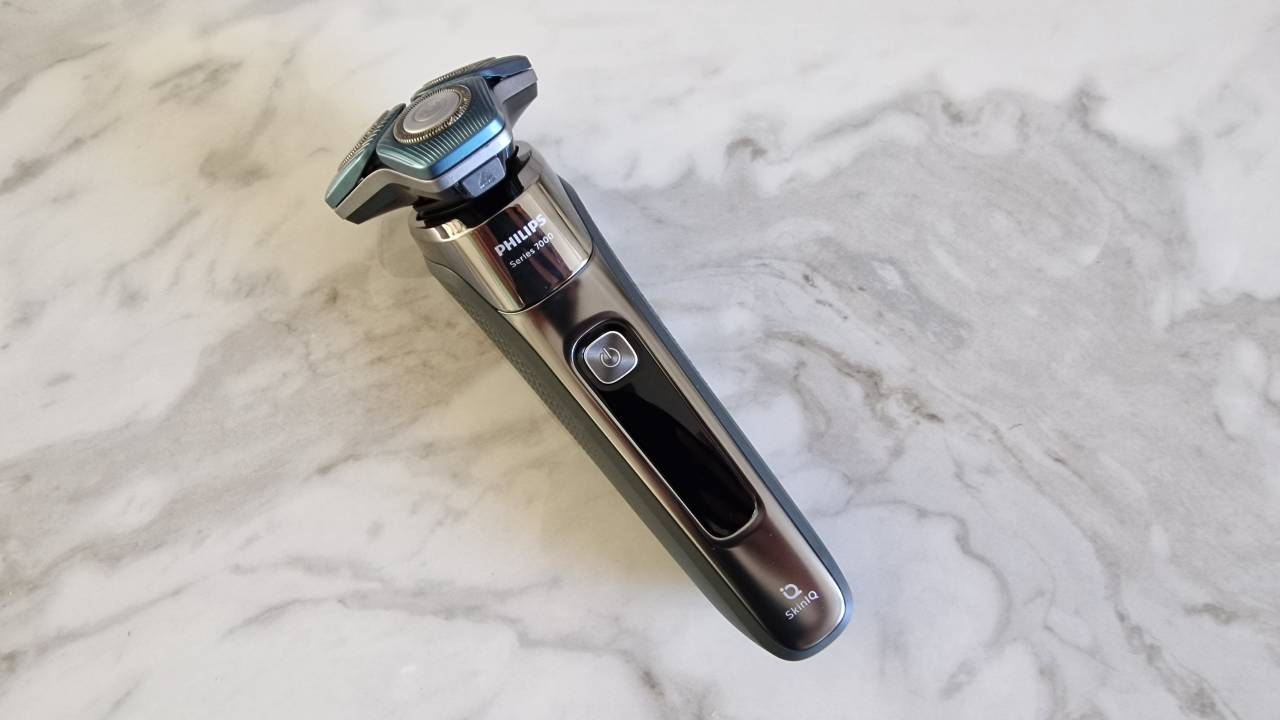
Philips Shaver Series 7000
The brand you choose should come down to which type of shaver you prefer; foil or rotary. I tend to prefer foil shavers overall, and these are generally best for users with sensitive skin. Rotary shavers can perform better on thicker, coarser stubble and are a good option if you are prone to ingrown hairs. Rotary shavers are also best if you’re wanting to use the shaver on your body and head as well as your face.
That said, our current favourite shaver is the foil-style Braun Series 9 9390CC, thanks to its great performance on longer stubble, titanium-tipped blades and good battery life with speedy charging. Behind that (but still awarded the full five stars and crowned a T3 Awards winner) is the aforementioned rotary-style Philips Series 9000 Prestige. For those on a tighter budget, I also highly recommend the rotary-style Philips Series 9000 S9711/31.
Alistair is a freelance automotive and technology journalist. He has bylines on esteemed sites such as the BBC, Forbes, TechRadar, and of best of all, T3, where he covers topics ranging from classic cars and men's lifestyle, to smart home technology, phones, electric cars, autonomy, Swiss watches, and much more besides. He is an experienced journalist, writing news, features, interviews and product reviews. If that didn't make him busy enough, he is also the co-host of the AutoChat podcast.
- Bethan MorganHome Editor
